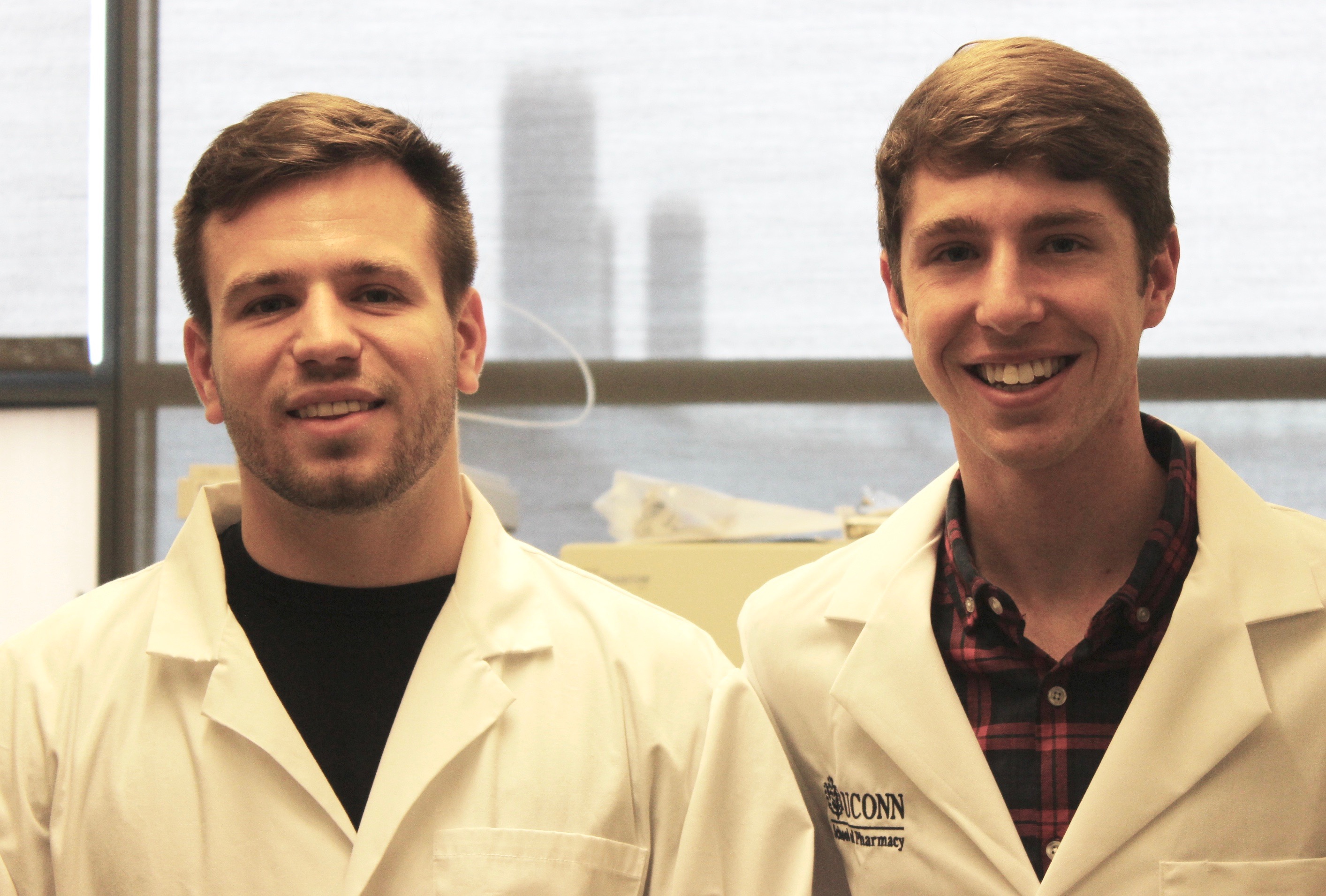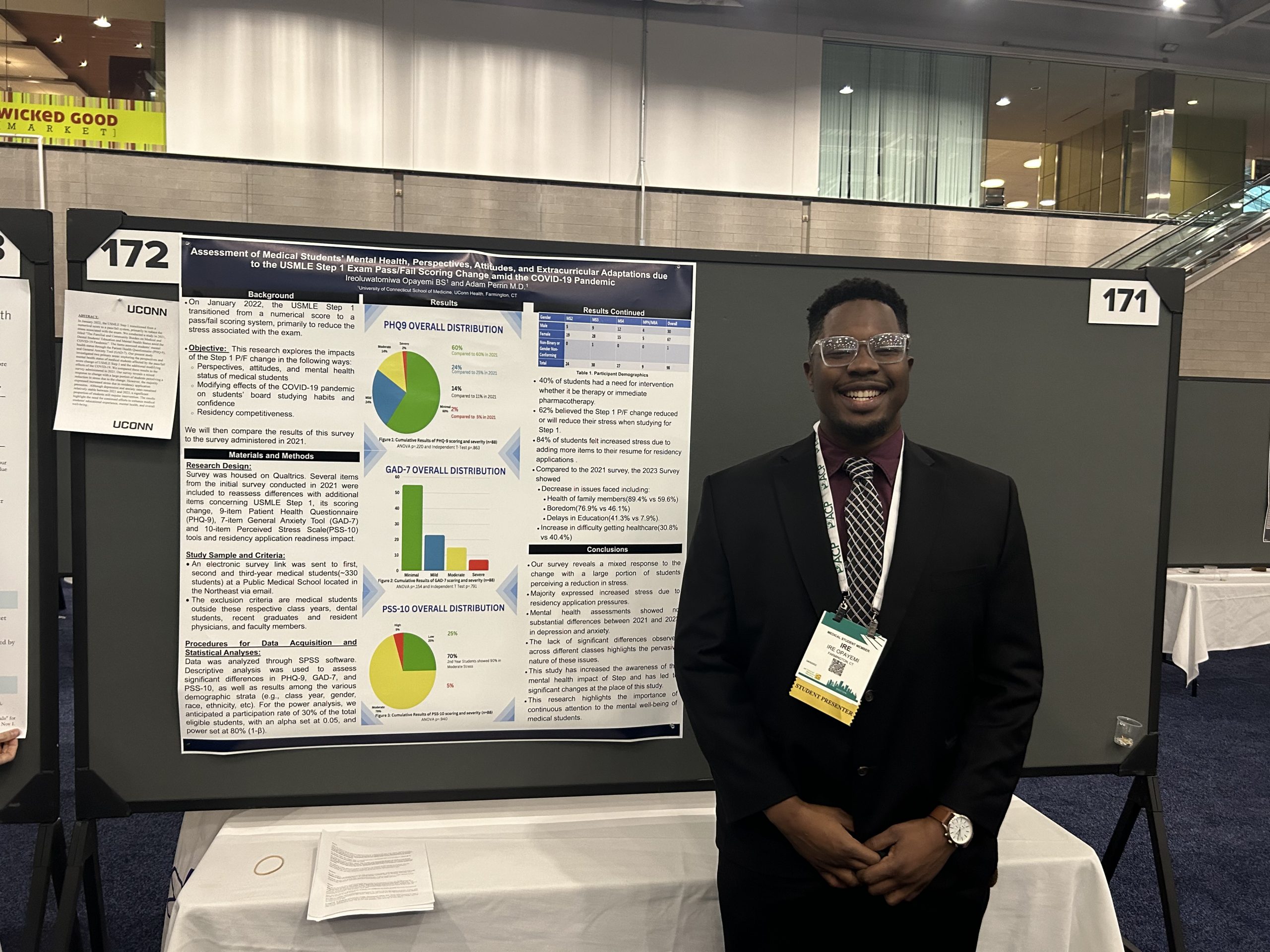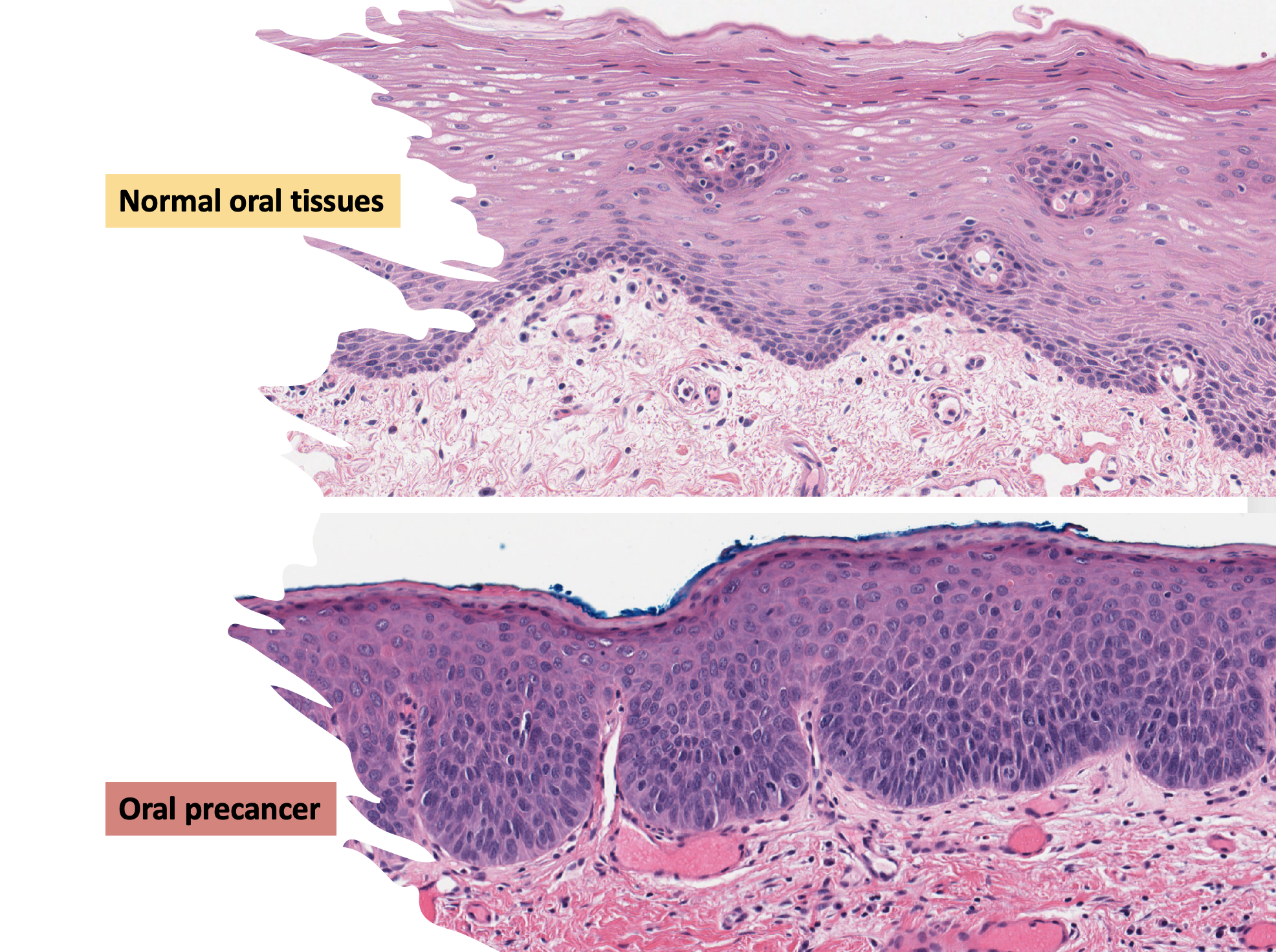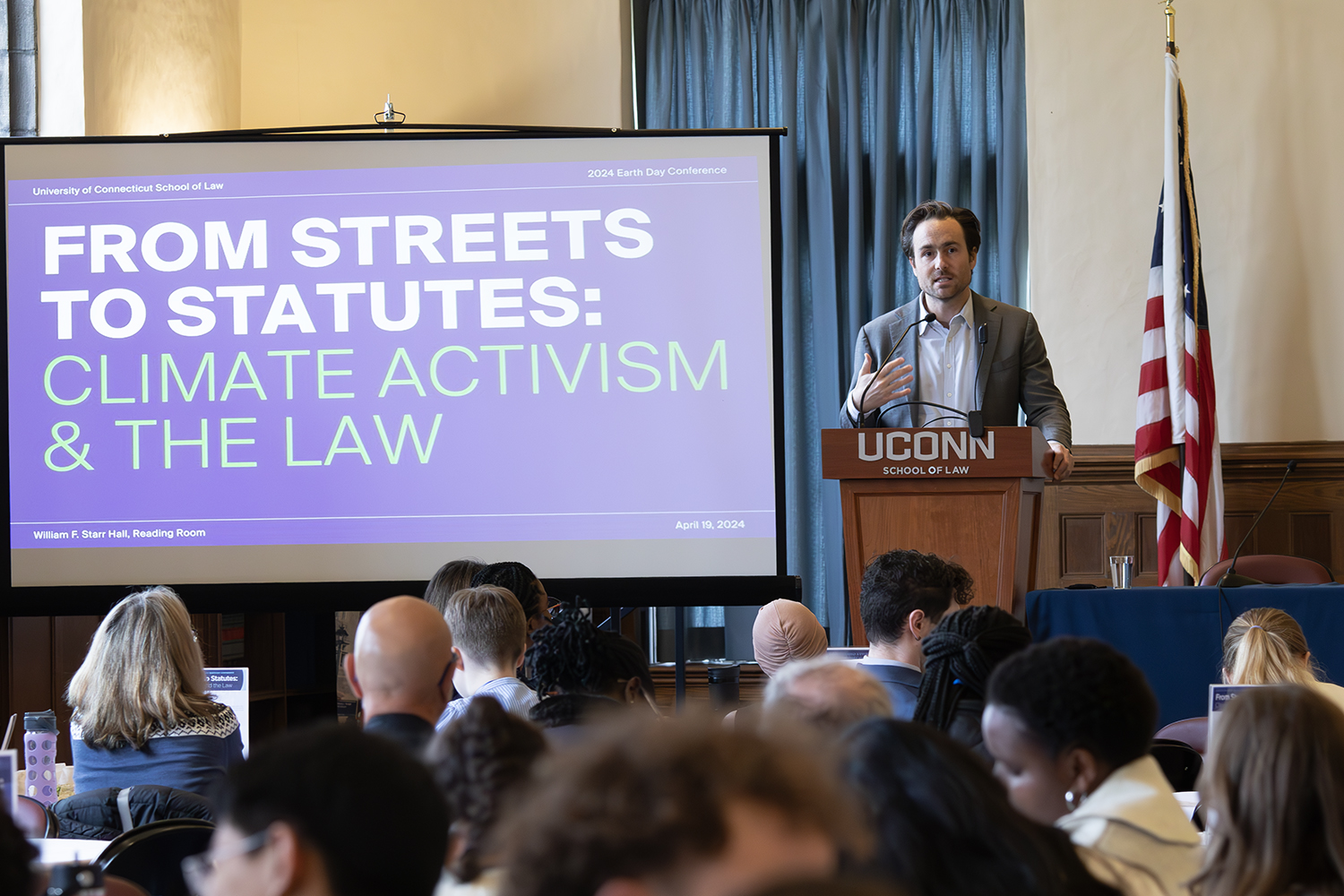Ask associate professor of reconstructive sciences Caroline Dealy to rate the success of the Technology Incubation Program’s (TIP) summer internship program so far and she says she’d give it an A+. She hastens to add that she may be just a tad biased — it was her brainchild after all — but she stands by her assessment.
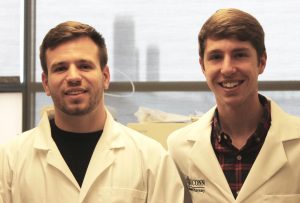
Ask Tyler Ackley ’17 (CLAS; Pharm) and Brendan Clark ’17 (CLAS; Pharm) what they think, and they say Dealy’s right. And they should know. Both participated in the summer 2016 TIP internship program and have utilized what they learned during those 10 weeks throughout the current academic year. Now, they are preparing to transition into PharmD studies next fall and they’re taking that experience with them.
In Ackley’s case, he had the bonus of working with Dealy on a project in her well-established lab that was ‘all his own’ with no other student researchers involved. And Clark had the benefit of being the only intern in an exciting startup that was founded by a newly minted UConn chemical engineering PhD — an experience that he says may influence his ultimate career choice.
Research in Rheumatoid Arthritis
When Dealy let it be known that she was looking for a research intern last summer, Ackley jumped at the chance. An Honors student with a double major in pharmacy and molecular and cell biology, it was the opportunity to turn bench research into a ‘real life’ therapeutic application that appealed to him.
“I had been studying genomic imprinting and its effect on cognitive development in mice in [associate professor] Michael O’Neill’s lab in MCB,” he says, “and when I found out that professor Dealy was looking for someone to participate in her research on Rheumatoid Arthritis, I applied for the TIP internship position. My role was to study how an epidermal growth factor receptor — a protein called EGFR for short — might be useful in targeted treatment of the disease.
“This was a great opportunity for me to take the skills I’d learned in the lab and apply them to a real life situation.”
Dealy describes UConn as a ‘talent factory’ and she says that Ackley is a great example. “Protein biology and characterization is not my normal focus, but Tyler was able to provide valuable input on approaches we need to explore. He was a real asset.”
Rheumatoid arthritis is an autoimmune disease where a person’s immune system attacks the body’s own cells, leading to painful joint swelling and loss of mobility. Dealy hopes that Ackley’s research will eventually help lead to a better way of managing the disease, using a targeted approach that doesn’t rely on the powerful immunosuppressant medications that are currently prescribed.
The School of Pharmacy shares Dealy’s excitement about the potential for Ackley’s research and recently named him as the recipient of this year’s Karl A. Nieforth Pharmacy Student Research Award, a highly selective honor that includes a stipend and research funds. This support will enable him to continue his work throughout the summer of 2017.
In on the Ground Floor
In Clark’s case, he was at the right place at the right time.
His mentor, Ying Liu, had taken the School of Engineering’s courses in Experiential Technology Entrepreneurship I and II with professor Hadi Bozorgmanesh as she studied for her doctorate in chemical engineering. At the same time, she was inspired by School of Pharmacy professor Diane Burgess and her class on surface chemistry and colloid science. She was intrigued by the possibility of applying her scientific knowledge to the development of cosmetic products that would promote healthy skin conditions.
Liu was awarded a ‘Third Bridge Grant’ which provides early funding to engineering students with promising technologies as they begin to move their ideas towards successful commercialization, and she was also accepted into TIP.
By last summer, Liu had a name for her nascent company — ReinEsse for rejuvination, innovation, and essence — initial funding, and laboratory space in Farmington. What she needed was help in developing her idea into a full-fledged product.
“I learned about the TIP summer internship program,” she says, “and I interviewed a number of students. They were all good, but Brendan really stood out. It was clear from the beginning that he’s passionate about research and he has great communications skills — both things that have proven to be invaluable.”
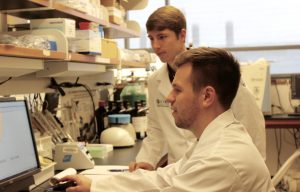
Clark says that as the first person to join Liu’s company he was in the enviable position of feeling like a colleague as much as an intern. A double major in biology and pharmacy, he felt both challenged by the opportunity and right at home working alongside someone with whom he shared such similar interests.
“I was already working with liposomes, which are nanoscale particles that can be used to improve the delivery of drugs or vitamins throughout the body,” he says, “and one of the things that excited me about working for ReinEsse is that I am interested in dermatology. At one time I had even thought of going to medical school to become a dermatologist.
“People sometimes think of cosmetics as being superficial, but if we can develop products that make people not only feel and look better, put possibly even play a role in managing underlying skin conditions, than that would be amazing.”
Planning for the Future
The Technology Incubation Program (TIP) was originally created almost two decades ago to provide lab space, technological and business expertise, and other support for startup technology companies — including companies utilizing UConn based research.
TIP startups are located in incubators on campuses in Storrs, Avery Point, and Farmington. Last year, TIP doubled in capacity with the opening of a new 26,000 square foot incubator at UConn Health, which is already close to fully occupied by new startup companies.
“The integration of research and commercialization that happens in TIP startup companies has been a tremendous success in accelerating development of new technologies and innovations,” according to Dealy.
Through her efforts over the past five years, UConn students are now part of this success. That’s when Dealy came up with the idea of a summer internship program that would bridge industry and academia at UConn by immersing its students into the world of technology commercialization — giving them hands on experiences and ground floor opportunities that, in some cases, might eventually lead to full time employment. The program lasts 10 weeks and comes with a stipend of $3500 for undergraduates and $5,000 for Master’s students.
With the support of UConn’s deans who cover the intern stipends, Dealy has grown the summer program to where this year there are 215 applications for up to 20 available slots — an increase over the 10 to 15 positions available in prior years.
In addition to the lab experience, students attend weekly workshops and training sessions that Ackley and Clark describe as extremely beneficial, providing insights into both other fields of bioscience and into the whole commercialization process.
Both have continued with the work they began last summer, with Ackley writing his Honors thesis based on his work with Dealy, and Clark doing an independent study on transdermal drug delivery.
As for the immediate future, both students will be entering the PharmD program in the fall and will be occupied for the next two years in the academic and internship activities required for that professional degree. Beyond that?
Ackley says he is already thinking ahead to a possible PhD program and a career in either the pharmaceutical industry or in academia — or both. Clark is also thinking about a possible role in the pharmaceutical industry, perhaps in regulatory or medical affairs or clinical development. But then again, his experience with ReinEsse has him thinking that being part of an exciting new company with both medical and cosmetic applications – aka cosmeceuticals — might be the way to go.
Whatever their decisions, the future looks bright for both these young scholars.
